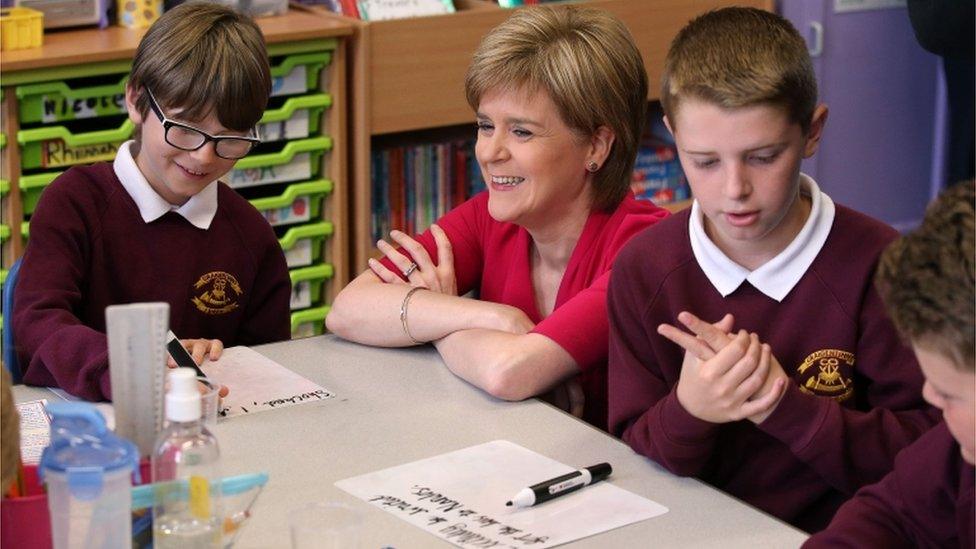John Swinney: New school tests are 'not high stakes' exams
- Published
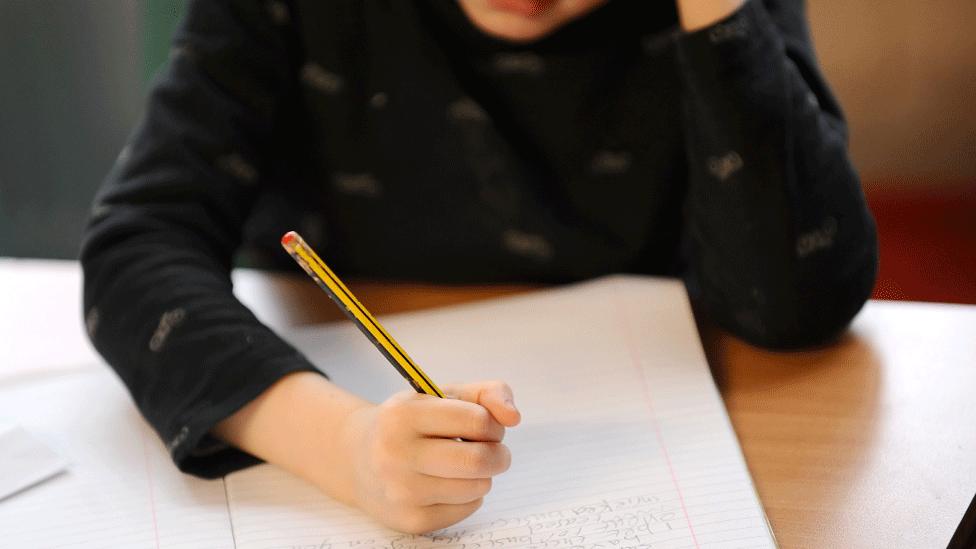
Pupils will be assessed in reading, writing and numeracy in P1, P4, P7 and S3
New school assessments to be taken by children across Scotland from next year are "not high stakes tests", according to Scotland's education secretary.
John Swinney sought to reassure parents and teachers as more details of the standardised assessments were revealed.
The online tests will take 50 minutes, they will not be marked by teachers and there will be no pass or fail.
Children in P1, P4, P7 and S3 will take the tests, covering reading, writing and numeracy from next year.
The Scottish government said the information produced by the tests would help teachers raise attainment amongst schoolchildren.
It stressed that the tests were not comparable to those taken south of the border and it deliberately avoided the phrase "national testing".
Amongst the key details it revealed were:
Each assessment should take no longer than 50 minutes to complete - but many children are likely to take less time;
Teachers will not mark them. The assessments will be completed online and automatically marked by the online system;
Teachers will be free to decide when children should sit them. There is no suggestion that every child in Scotland will sit them on the same day;
Children will not need to prepare or revise beforehand;
If a child is struggling, the questions will get easier while a child doing well will receive more challenging questions.

Mr Swinney said: "Teachers are best placed to make judgements on how children are doing in school and draw on a wide range of information - both formal and informal - to help them form a view.
"The new national standardised assessments...will be designed to be as straightforward as possible for teachers and children alike.
"These are not high stakes tests: there will be no pass or fail and no additional workload for children and teachers."
He said they would be an "important tool" for teachers who would be able to use their results to evaluate whether their class had achieved the appropriate Curriculum for Excellence standard for their age.
The tests will be developed and delivered by ACER International UK Limited - a wholly-owned subsidiary of the not-for-profit organisation, Australian Council for Educational Research.
'Professional judgements'
Larry Flanagan, the general secretary of the EIS teachers union, said many of the union's earlier concerns had been addressed.
But he is still sceptical about the potential for the data from the tests to be used to produce league tables which compare the superficial performance of schools.
The government has made it clear it will not publish league tables.
"The concession for the teacher to choose when it's done is quite important for us as that stops it becoming an end-of-the-year exam diet," he said.
Mr Flanagan said he understood teachers would not necessarily have to test the whole of their class together - a move he welcomed.
He added: "We are being reassured by the messages surrounding assessment being there just as a contribution towards professional judgements. Some of the safeguards put in place are welcome."
Seamus Searson, general secretary of the SSTA union, said he still had a number of reservations.
Mr Searson said: "In a primary school, the class teacher would know the children across the curriculum. But in a secondary school, the risk is that assessing literacy and numeracy could end up as an additional burden just for English and Maths teachers.
"If there are going to be assessments in secondary schools, we would argue S2 would be a better time, before children start preparing for their national courses."
Mr Searson also expressed concerns that teachers could spend time preparing children for the tests - despite the assurances the government has given.
- Published6 January 2016
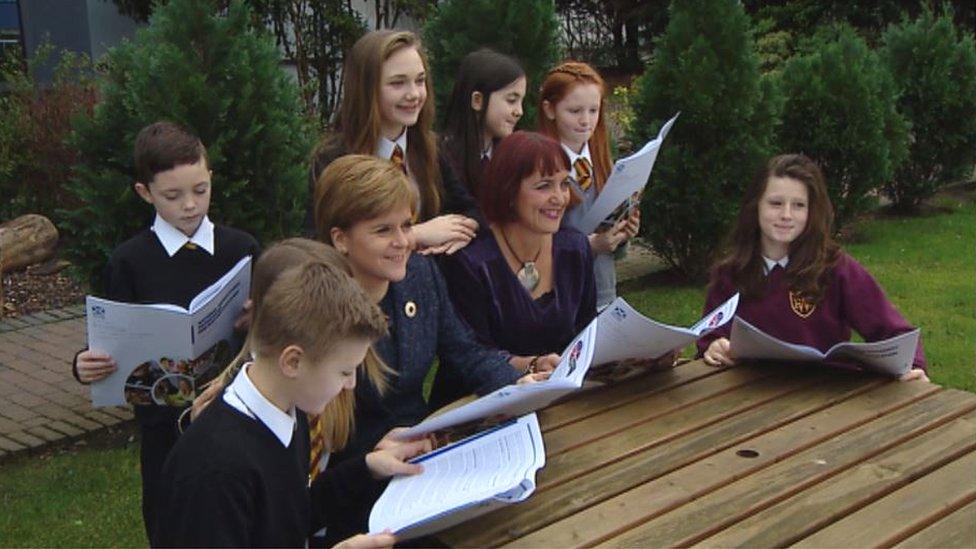
- Published5 January 2016
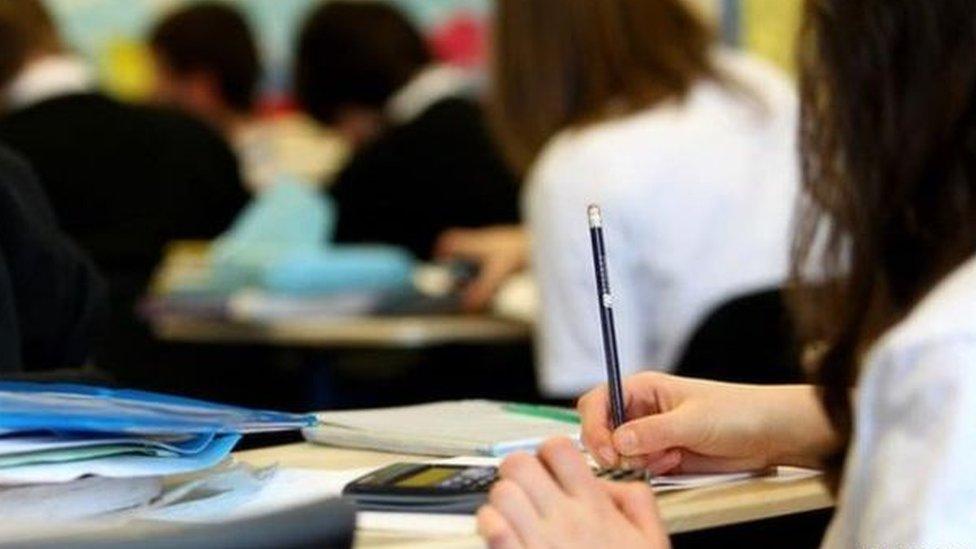
- Published8 December 2015

- Published1 September 2015
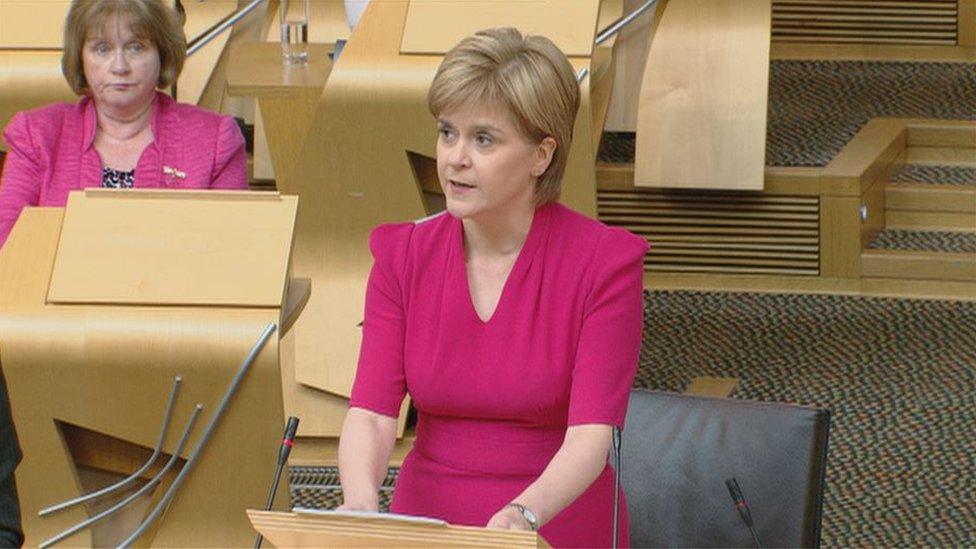
- Published2 September 2015
